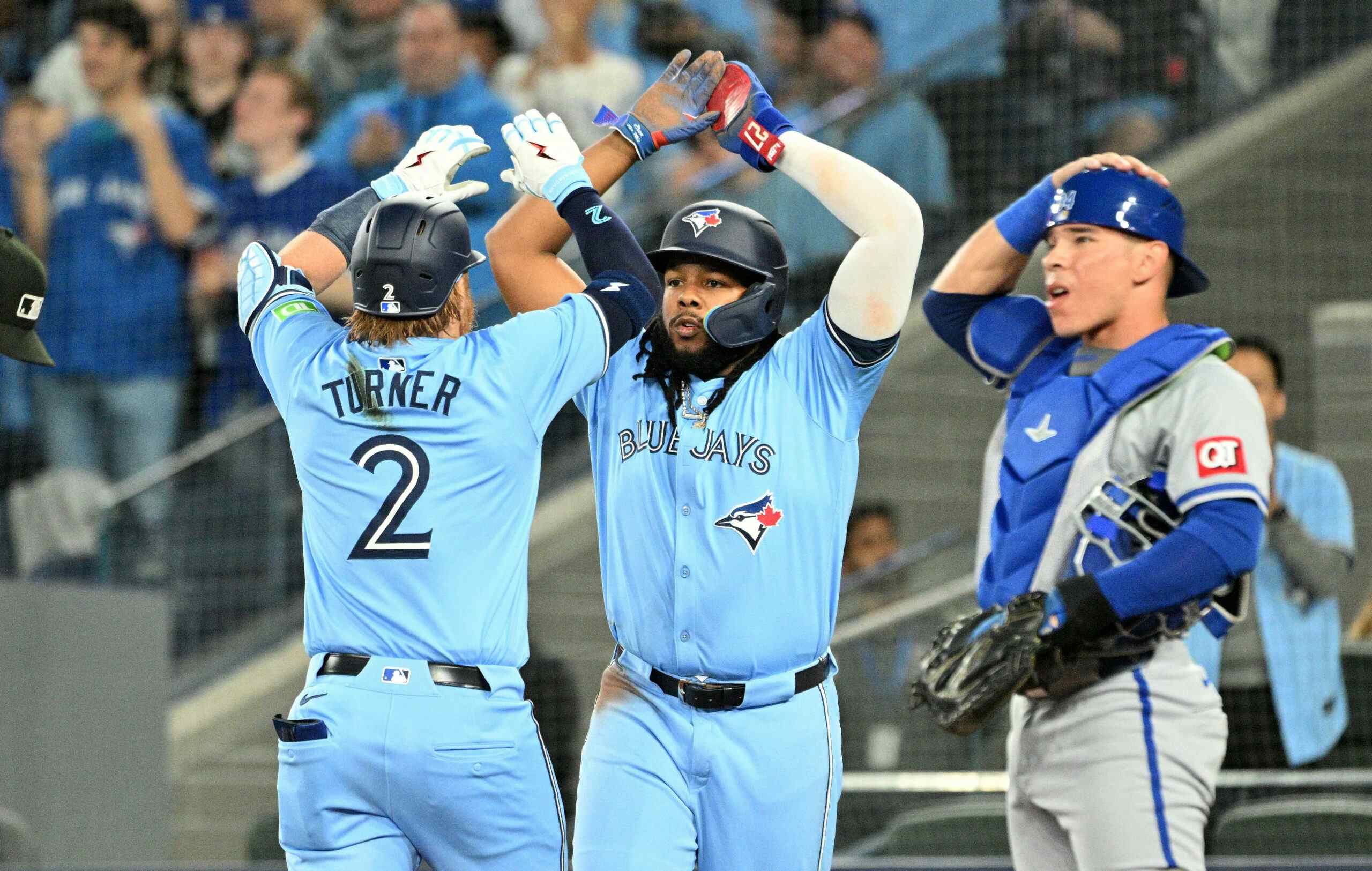Fowles: Biagini and the Stupidity of the Scrum

Photo Credit: Nick Turchiaro-USA TODAY Sports
Between the joyous glee of not one but two unlikely Jays walk-offs (thanks, Justin Smoak and Russell Martin), Joe Biagini gave an interview. The Rule 5 right-hander had come off the mound with his first career win, his demeanor suggesting that having microphones suddenly thrust in his face was not something he was all that accustomed to.
Tuesday’s post game interview was pretty standard, though Biagini’s relentlessly comedic responses certainly were not. Jesse Chavez and Josh Thole even hung around to watch the proceedings, rightfully predicting that the pitcher was going to have a little fun with reporters. (This is not the first time his interview shenanigans have been documented on film, meaning he’s well on his way to becoming an official MLB “character.”)
Low key, dry and droll, Biagini makes a joke about not having a speech prepared. He makes a joke about the Toronto Raptors taking the attention away from baseball. He makes a joke about scratching himself, and the smell of Smoak’s bat on the ball. In case there is any potential misunderstanding or misrepresentation, he tells the room he’s kidding multiple times. The four minute and fifty-two second video is actually a kind of delightful farce, one that makes you at the very least amused to call Biagini a Blue Jay. Though it’s not all that revealing baseball-wise, it certainly gave the 25-year-old rookie a chance to show off his now well-established, wacky sense of humour.
But what Biagini also did while in the post-win spotlight was casually reveal the ridiculousness of the post game scrum. Whether intentional or not, he’s lightly mocking the time-honored tradition of taking a player aside right after a match-up, and asking him why things went the way they did. (“I decided to start throwing better pitches.”) When Biagini isn’t making absurdist jokes, he’s delivering standard, overly rehearsed baseball platitudes like “staying consistent,” “developing a routine,” “getting a chance to contribute,” and the Jays being “by far the best team I’ve ever been a part of.”
The whole thing comes off like a veil-lifting question of, “you all know how stupid this is, right?”
The post game scrum is certainly a mired staple of standard sports reporting, but I don’t know that many people who think the resulting sound bites are wholly useful or informative. In fact, the rapid-fire interviews mostly just seem like filler, or rehearsed theatre performed by a group of unwilling participants. A lot of reporters have told me they hate them. A lot of players seem to hate them. And when it comes to learning about why an individual game went the way it did, or how a player actually feels about a win or a loss, very few fans see them as all that helpful. The same kind of predictable, stock questions are generally lobbed, and the same safe, overly rehearsed replies are dispensed. When compared with in-depth player profiles and one-on-ones, the scrum looks more like a frantic gathering of crumbs—necessary for content creation, but not necessarily useful.
The funny thing about these kinds of interviews is they tend only to be newsworthy when they break with protocol, they’re unpredictable, or just plain go “wrong.” When David Ortiz calls pace of play rules “bullshit.” When MVP Bryce Harper wears a “Make Baseball Fun Again” cap. When pitcher Jonathan Papelbon says, “I blew the game,” and then casually spits into a cup. When Jose Bautista makes a very Bautista-like jab about how many followers he has on Twitter compared to everyone else in the room. Scrums are sadly at their most compelling when they’re adversarial, when the standard sports script is broken, or when they simply don’t go as planned. In fact, they sometimes seem predicated on a “gotcha” moment that rarely comes.
The reality of a content hungry sports media climate (which I fully acknowledge I’m a minor part of) is that we’re gagging for player quotes, regardless of whether or not they really give us any real insight into the teams we love. Further, the notably exclusionary reality of media access means we generally get the same group of guys asking questions day in and day out. Though they’re largely professionals who are good at their jobs, the scrum environment inevitably lacks intimacy or a real diversity of perspective—a consequence of a limited number of strictly mainstream media reps being granted the right to ask questions in a restrictive amount of allotted time.
This set formula means we cover sports in an extremely limiting way, which is a loss for anyone who loves the game. And whether they’re introverted, or simply annoyed by the process, players often seem put off by the obligation, something that certainly doesn’t contribute to a helpful flow of information.
Watching that video, it’s an insightful breath of fresh air to see Biagini perform for the camera, lightly mocking the standard process and in doing so unveiling its flaws. Beyond that, it has been pretty hilarious watching sports media grapple with his non-standard personality, his quirkiness now becoming the subject of sports radio discussions, asking “could Biagini become one of the MLB’s great eccentrics,” and worrying that “his act might wear thin.”
Calling for a change in how and who we let cover the game is likely a futile exercise, but there’s no harm in interrogating why this is the way we’ve collectively chosen to go. The scrum environment seems needlessly limited, forced and manufactured, more about propping up artifice than really illuminating anything for fans.
In that sense, Biagini and his widely shared jokes reveal more than just his inherent playfulness. Whether intentional or not, him going off script reveals just how rigid that script for both players and media actually is.
Recent articles from Stacey May Fowles





